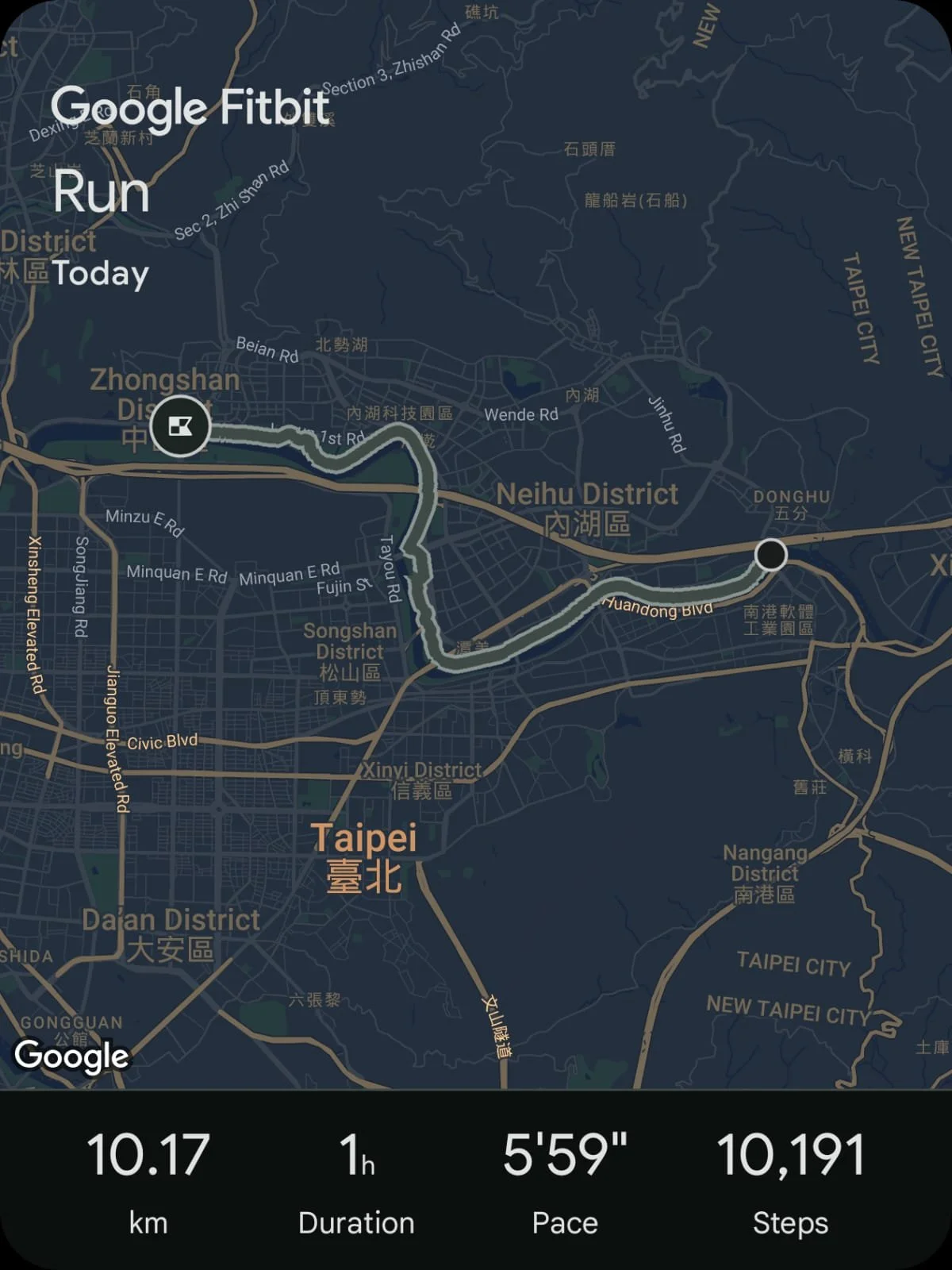Future of spatial intelligence?
22 November 2025
Managed to find some time to jog along Keelung River when I was in Taipei last week to attend Taiwan Academy of Periodontology annual conference. It was a pleasant run and luckily it wasn't raining too heavily when we were running.
Before the advert of live navigation apps, street navigation and topographical exercises relied on a combination of map reading, route planning and memory work before starting; and during movement, an awareness of your current position. Had to do this along Keelung River since it was unfamiliar and I usually don't run while staring at the phone. Basically the route started westward with 3 bridges in this stretch, before turning northward with 4 bridges here and the seventh being a wide expressway, and finally a long westward stretch and the endpoint being the 8th bridge.
For the few past decades, IQ scores have been trending upwards with an average increment of 3 points per decade but in recent years a reverse trend has been observed. This is unsurprising given the conveniences of modern life. For example, when was the last time you memorised a handphone number? Yet surprisingly, I still remember the landline of some of my childhood friends even though I have not dialled that number for aeons.
Spatial intelligence doesn't receive as much attention but I wonder whether a similar trend is happening. Does this have any implication for dentistry? Maybe yes, maybe no. For static computer guided implant surgery (CGIS), it is closest to using an app to plan your route but not using it throughout, for dynamic CGIS, using a live navigation app throughout, and for robotic surgery, a self driving car. Some touchpoints might be lost, but other insights are gained. In any case, all three will surely be able to get to the destination, if and when correctly indicated.

